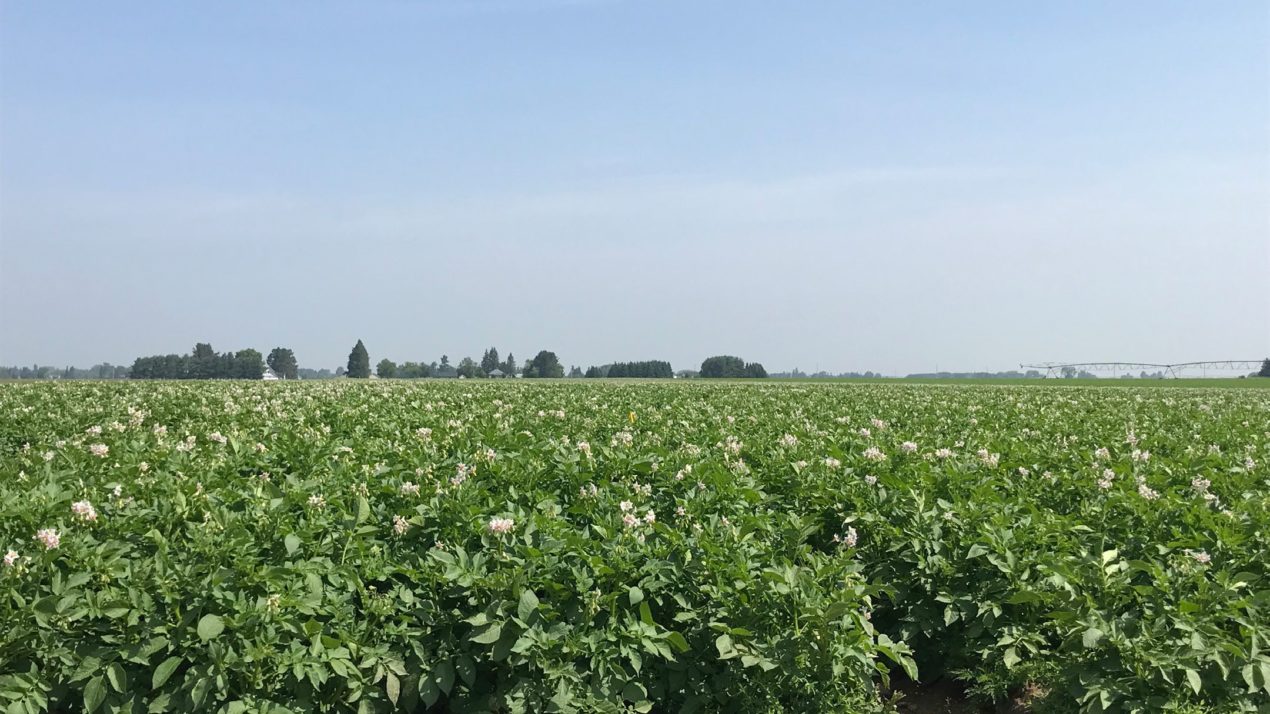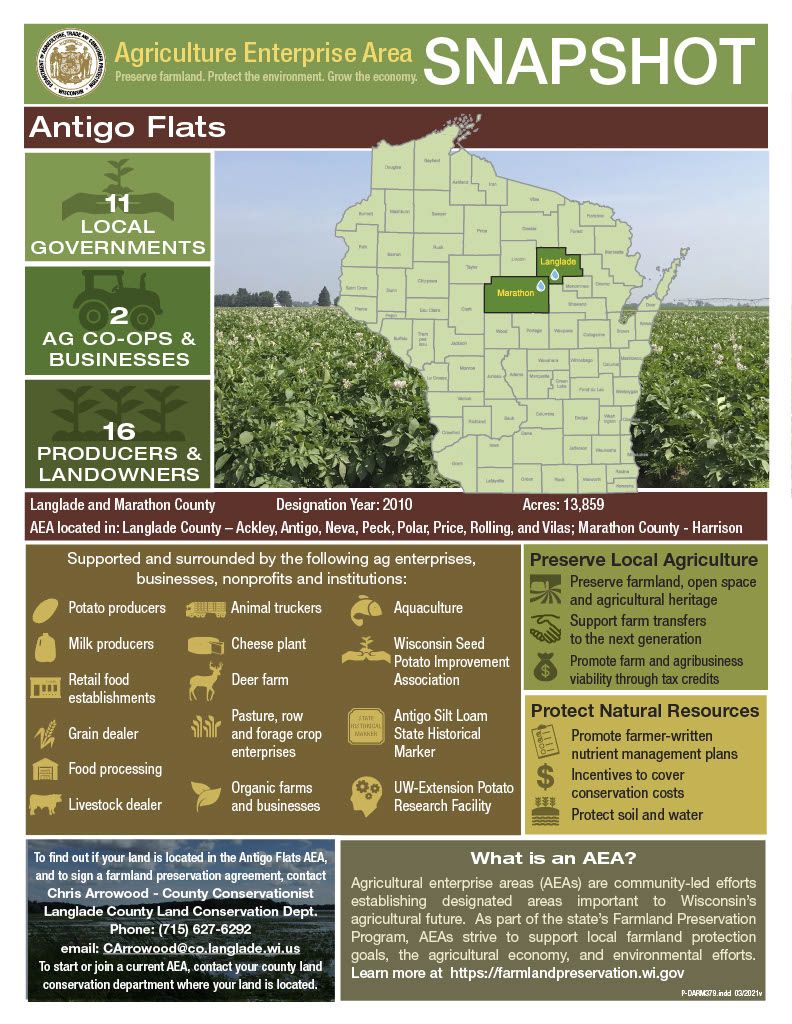
Occupying more than 11,000 acres in the heart of Wisconsin’s potato country, the Antigo Flats agricultural enterprise area (AEA) was designated in 2010 during the state’s first petition cycle. The community uses the AEA to cultivate a strong network of multigenerational farms that support one another through farm transfers, operation diversification, and adoption of new conservation practices.
The Antigo Flats AEA is comprised of farmland in southwestern Langlade and northeastern Marathon counties, including the 34-acre Langlade Agricultural Research Station operated by UW-Madison Division of Extension. Home to the historical marker for the state soil, Antigo Silt Loam, the community within the Antigo Flats AEA considers soil among its greatest assets. Farmers in the area use nutrient management plans to provide the foundation to increase soil health, reduce nutrient and sediment runoff, and maximize the efficiency of applied nutrients. These plans can also be used to help producers diversify and introduce new practices into their system.
Producers in the Antigo Flats AEA have been early leaders in nutrient management, integrated pest management, and conservation practices. Larger farms within the AEA are finding ways to become more efficient in their production, and smaller family farms are starting community-supported agriculture vegetable operations. County staff in Langlade and Marathon counties hope the benefits of the AEA program can help offset the cost of farming and keep producers in the Antigo Flats area viable for future generations.

To find out if your farmland is located in the Antigo Flats AEA, to sign a farmland preservation agreement, or to learn more about conservation initiatives and resources in Langlade County, contact Chris Arrowood of the Langlade County Land Conservation Department at (715) 627-6292 or by email at [email protected].

Leave a Reply